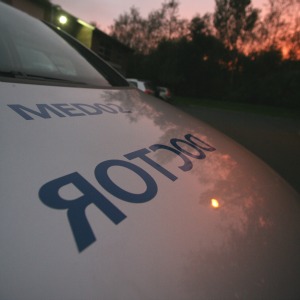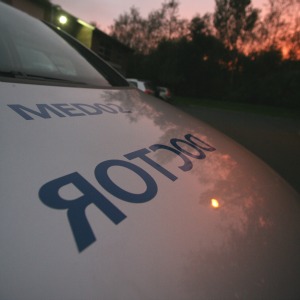Out-of-hours services ‘broken’ as single GP regularly covers 370,000 patients

Out-of-hours services in Northern Ireland are on the verge of collapse, with individual GPs regularly having to cover populations of 370,000 overnight on their own, GPs have warned.
Those in the South and West are being hit the hardest and are almost at the point of having to close completely, RCGP NI said.
Dr Frances O’Hagan, who is chair of Southern LMC and works for the out-of-hours service, described the service in the South as ‘broken’.
She said one GP was left to cover a population of 406,000 patients – although the health board claimed the figure was 369,000 – spread over a large geographical area, rather than the three required on 12 overnight shifts in August.
‘We have been limping along but I would say it is now broken in the South.
‘There is a problem with chronic understaffing but it has come to a real head in the past few weeks.’
Having only one doctor on call used to be rare but is becoming the norm, she added.
A long-standing shortage of GPs plus high costs of indemnity are behind the problem to which the Government needs to find an urgent solution, she said.
‘If I do more than two shifts a month my indemnity rockets so I can’t just do a couple of hours here and there to help out.’
Earlier this month it emerged that an out of hours provider in Doncaster responsible for 300,000 patients had been running night shifts with no GP on the rota.
RCGP NI chair Dr John O’Kelly said they had been warning for a decade that a chronic shortage of GPs in the country would lead to crisis point and ‘hey presto, here we are’.
Training places in Northern Ireland had increased this year from 65 to 85 but this still was not enough and would not solve the current staffing problems, he said.
Coupled with under investment in general practice it had created a ‘perfect storm’.
He added: ‘It’s not surprising out of hours is in trouble and it has a knock on effect on the whole of the health service.’
Young GPs are quite rightly worried about doing out-of-hours shifts over fears it is just not safe, he said.
‘Sat on the minister’s desk right now is a report with recommendations which would solve these problems,’ said Dr O’Kelly ,adding the College had called on them to fully resource GP services.
A spokesperson for the Southern Health and Social Care Trust said the population was closer to 360,000, and it had been a significant challenge to ensure there are enough GPs to cover the 440 sessions a month for some time.
‘We recognise the service is under pressure and at times during the quieter 12pm – 8am period, there is only one doctor on cover but we also have nurses available to provide triage.’
‘The Trust is working with local GPs, the Southern Local Medical Committee and the Health and Social Care Board to help ensure the GPs who currently work in the service continue to do so and to encourage more GPs to work in the service.’
The problems faced by out-of-hours providers

GPs on call – OOH – out of hours – urgent care – online
England and Scotland have struggling with GP cover. In Doncaster, a GP out-of-hours provider covering 300,000 patients has been running overnight shifts without any GPs on the rota and having to use only nurses and other healthcare professionals. However, this was on fewer occasions than in Northern Ireland
In Glasgow and Clyde, out-of-hours services were recently shut down due to a shortage of GPs while NHS Glasgow has had to rely on nurse practitioners to do home visits.
In England, the Department of Health has acknowledged the problem and NHS England recently announced that a scheme that saw GPs reimbursed for hikes in indemnity costs for taking on out-of-hours shifts last winter is set to be repeated during the coming winter.
A GP Survivial survey, carried out earlier this year, suggested one in four GPs have quit urgent care work amid spiralling indemnity. fees.
Pulse has also reported that out-of-hours providers have struggled to compete with the Government’s seven-day routine GP pilots, which offered GPs better rates and less antisocial hours.
Pulse October survey
Take our July 2025 survey to potentially win £1.000 worth of tokens











